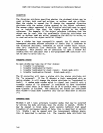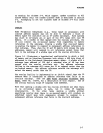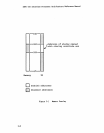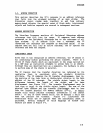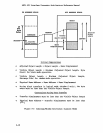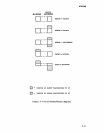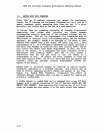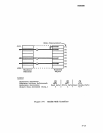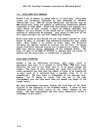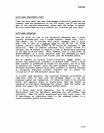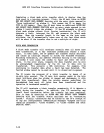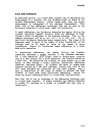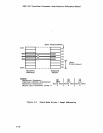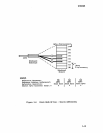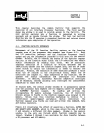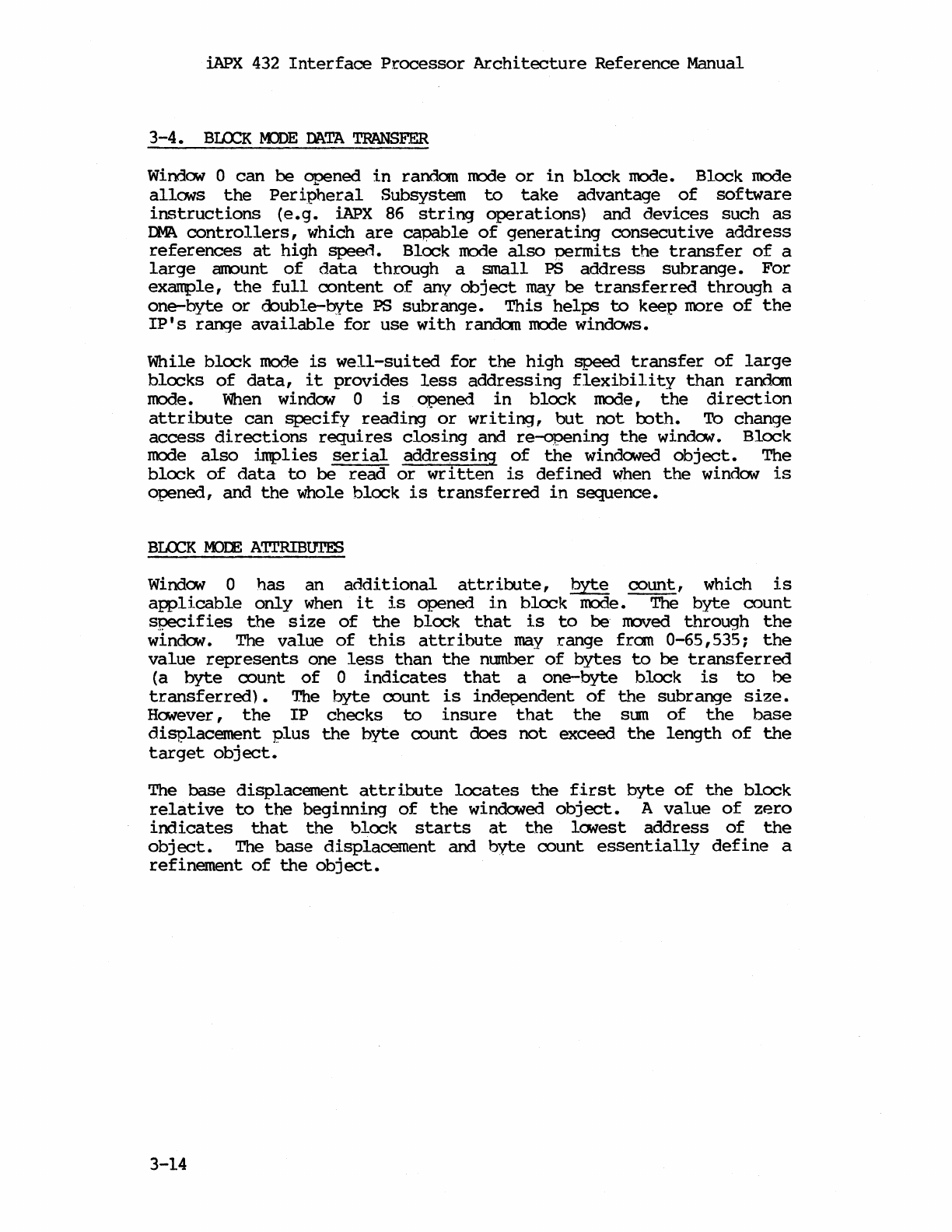
iAPX
432
Interface
Processor
Architecture
Reference
Manual
3-4.
BIOCK
MJDE
MTA
TRANSFER
Window
0
can
be
opened
in
random
m::Xie
or
in
block
mode. Block mode
allows
the
Peripheral
Subsystem
to
take
advantage
of
software
instructions
(e.g.
iAPx 86 str:i.ng
operations)
and
devices
such
as
~
controllers,
which
are
capable
of
generating
consecutive
address
references
at
high
speed.
Block
mode
also
oermits
the
transfer
of
a
large
anount
of
data
through
a
small
PS
address
subrange.
For
example,
the
full
content
of
any
object
may
be
transferred
through
a
one-byte
or
double-byte
PS
subr
ange.
This
helps
to
keep
ITOre
of
the
IP's
range
available
for
use
with
random
mode
windows.
While
block
mode
is
well-suited
for
the
high
speed
transfer
of
large
blocks
of
data,
it
provides
less
addressing
flexibility
than
random
mode.
When
window 0
is
opened
in
block
mode,
the
direction
attribute
can
specify
reading
or
writing,
but
not
roth.
To
change
access
directions
requires
closing
and
re-opening
the
window.
Block
mode
also
implies
serial
addressing
of
the
windowed
object.
The
block
of
data
to
be
read
or
written
is
defined
when
the
windCM
is
opened,
and
the
whole
block
is
transferred
in
sequence.
BLOCK
MJlE
ATl'RIBUTES
Window
0
has
an
additional
attribute,
~
count,
which
is
applicable
only
when
it
is
opened
in
block
IOOde.
The
byte
count
specif
ies
the
size
of
the
block
that
is
to
be
rroved
through
the
window. The
value
of
this
attribute
may
range
from
0-65,535:
the
value
represents
one
less
than
the
number
of
bytes
to
be
transferred
(a
byte
count
of
0
indicates
that
a
one-byte
block
is
to
be
transferred)
• The
byte
count
is
independent
of
the
subrange
size.
However,
the
IP
checks
to
insure
that
the
sum
of
the
base
displacement
plus
the
byte
count
does
not
exceed
the
length
of
the
target
object.
The
base
displacement
attribute
locates
the
first
byte
of
the
block
relative
to
the
beginning
of
the
windowed
object.
A
value
of
zero
indicates
that
the
block
starts
at
the
lowest
address
of
the
object.
The
base
displacement
and
byte
count
essentially
define
a
refinement
of
the
object.
3-14



